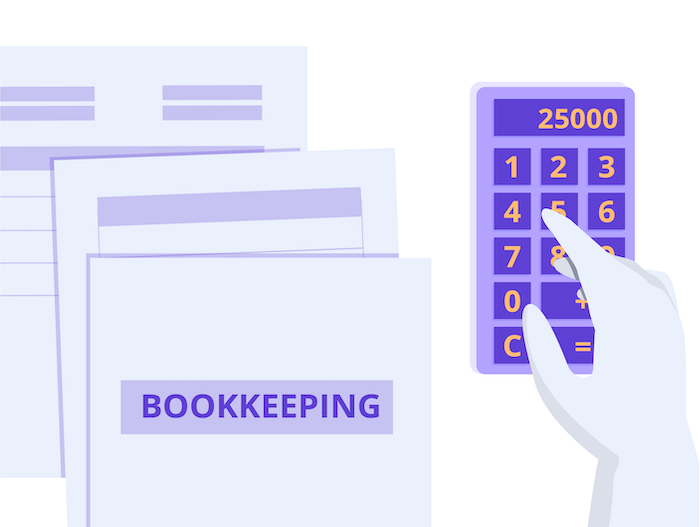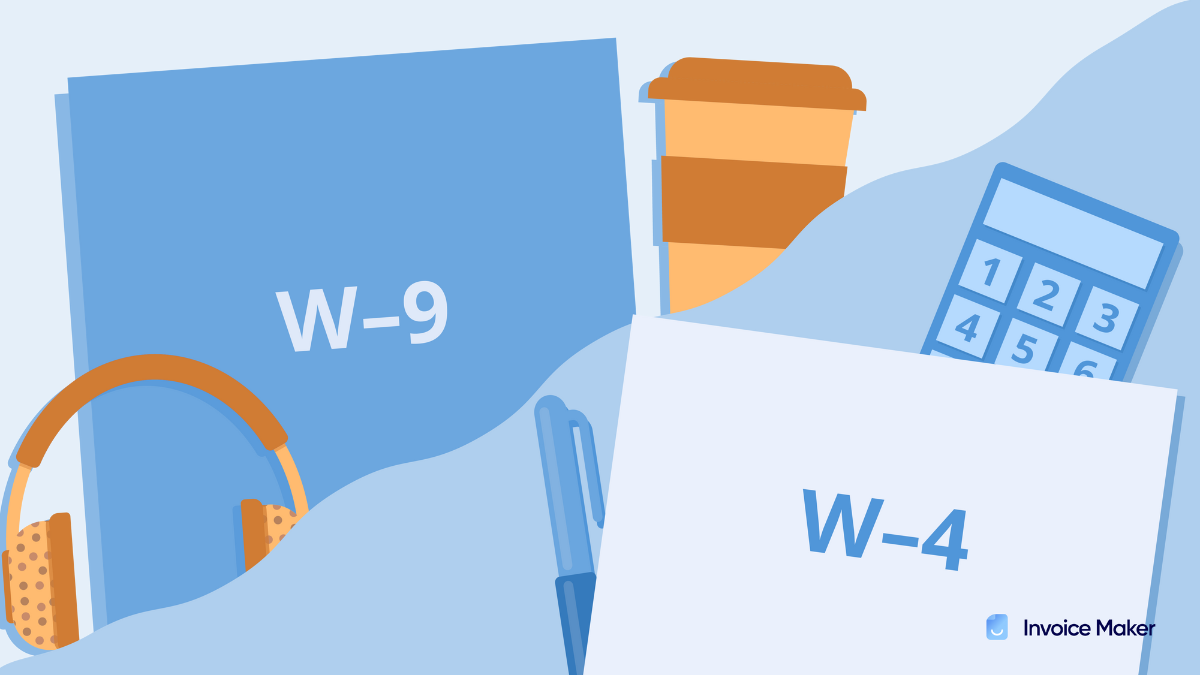How to Become a Successful Freelancer

As a freelancer, you’re an independent contractor, working for clients on a project-by-project or contract basis. Freelancing can be anything from a few side gigs here and there to a full-time solopreneur career — as with most things freelance, it’s up to you.
Make a Free Invoice NowTo succeed as a freelancer, you need to be excellent at the work you do, for starters, and you also need to be good at running a business: the business of you. Because you’re not selling a product or running a full-fledged small business, and because you have neither a boss nor employees to answer to, succeeding as a freelancer is very much about managing yourself on a day-to-day basis. Let’s explore work life in the freelance market.
Reasons to Freelance
There is potential precarity to the freelancing life, but there are also plenty of upsides. As a full-time freelancer, you get some of the benefits of both employment and small business ownership but without many of the hassles and responsibilities of either.
Freedom and Flexibility
You’re your own boss, you set your own schedule, and you choose what jobs to take. If you want to take two months off work to take a class or go on a trip, you don’t need anyone’s approval. For this reason, freelancing can be a great fit for people with kids or those who have medical issues or other personal factors that make the ability to work fluctuate.
Autonomy
Some people love the direction and leadership that comes with having a boss, while other people can’t stand it. If you’re someone who really doesn’t appreciate being micromanaged (or managed at all), self-employment as a freelancer can solve that problem, allowing you to do the work you love without the workplace dynamics you hate.
Money
There are some roles in which your potential earnings are much higher as a successful freelancer than as a salaried employee.
Work/Life Balance
This one is a double-edged sword because freelancing can destroy your work-life balance if you let it. But if you don’t, the freelance life can allow you to spend time with your family, travel, and pursue non-work goals and activities that matter to you. You’re the boss, so if you decide that you work a four-day week instead of five, you can make that happen as long as it makes sense financially. We’ll talk more below about exactly how to manage work-life balance to give you the freedom you crave, along with the income to support it.
Getting Started
Getting set up as a freelancer can be as simple as creating a website, or as involved as starting a small business. The scale of your business, along with the industry you’re in, will inform the scale of your startup needs. Here are some set-up factors to consider:
Space
Do you need a dedicated space to do your work? Or does creating a home office make more sense? If you work with clients in person, like a hairstylist does, or if your work requires equipment or a facility, like a tattoo artist does, you’ll have greater needs for physical space than a remote creative like a writer or a graphic designer.
Admin
All the un-sexy parts of running a business are, unfortunately, what will help keep your lights on. As a freelancer, you have more freedom to wing it than someone with a small business, but at a minimum you need a system for bookkeeping, invoicing, accounting, and banking. Creating an LLC is smart, as is carrying general liability and professional insurance.
Finances
How much money do you need to make? How many hours of work will it take you to earn that? How many clients will you need? The formula many people use to determine how much business they need to generate is:
- Start with your total desired annual salary
- Subtract your annual operating expenses
- Divide by 12 (for monthly income needs) or 52 (for weekly)
- Divide by your hourly rate (even if you don’t charge hourly, you should calculate your actual hourly earnings based on how many hours you put into a project)
- The resulting number is how many hours you need to work in each month or week to meet your income quota
Getting Clients
As freelancers, we spend so much time thinking about the details of our work and business that it can be easy to forget the single most important ingredient of a successful freelance business: paying clients. How do we get them?
Advertising
To succeed as a freelancer, you’ll need to invest in marketing and advertising while also spending time networking (online or in person, depending on the norms of your industry). You need people to know that you’re available, and you need your reputation to make you the person they pick when they have a project to hire for.
Referrals
Personal referrals are one of the best ways to get quality clients, and they are free, so don’t be afraid to put the word out to your personal and professional networks that you’re open for business. Referrals aren’t strictly reciprocal, of course, but being known as a person who is quick to give a quality referral is only an added value for your community standing.
Starter Jobs
When you first start out as a freelancer, it may be in your interest to take on “starter jobs” that are below the rate of pay you want to land at. Whether it’s to build your portfolio, establish references, or buy in for future work at your regular rate, opening with the option to give a “junior rate” can help bridge the gap between an empty calendar and a successful freelance career.
Side Hustle vs. Full-Time Freelance
Shifting your business model from a side hustle to a full-time freelance career requires a structural change in terms of how you run your business as well as a big-picture mentality shift. Your work is no longer extra or bonus income — it’s now your living.
Some factors that may (and should) shift as you work toward successful full-time freelancing include:
Pricing
Because you now have a certain income quota to meet in order to pay your bills, the way you price your work must fit into that paradigm. If you used to take on passion projects without worrying too much about the rate, you’ll have to make a change to that practice if you want to make a comfortable living. It’s also important to regularly raise your rates to reflect the cost of living increases, and to make sure expenses such as office space are justified in terms of how much business you’re bringing in.
Admin
If you used to feel casual about bookkeeping, banking, accounting, and other admin functions of your freelance business, you’ll want to level up in those departments.
Identity
In our society, many people build an identity around their career, and leaning into that can help you really occupy the role you fill at work. The difference between being an employee and being a self-employed freelancer is that you have all the agency to define your career and to shape and guide it in the direction that feels authentic and fulfilling to you.
Work/Life Balance
One of the biggest issues for freelancers is maintaining a healthy work-life balance. Because there’s no boss (and for remote freelancers, no separate office), the boundaries between personal time and work time can easily become blurry, or even nonexistent. At the same time, as you are hustling to make your business the best it can be, it can feel absolutely necessary to burn the candle at both ends and to take all the work you possibly can, out of fear of work scarcity in the future.
On one hand, we applaud the hustle in you. It takes a lot of self-starting to make it as a solopreneur, and your work ethic is part of what can help you succeed. On the other hand, you’re a human first, a freelancer second. You need adequate resources for your health, your family and social lives, and your well-being. Sleep is important, as is time outdoors and time spent with friends.
Thinking of your self-care practices as part of your business’s success strategy rather than an impediment to it is a critical reframe that will protect you from burnout and allow you years of longevity. It can be difficult to take a vacation as a freelancer, even if you’re making good money because you don’t get paid when you’re not working and the next job is never guaranteed. However, taking the occasional break is nourishing to your well-being.
Once you’re making a steady income, it’s wise to put money into a Roth IRA, a solo 401(k), or the equivalent, which should provide you peace of mind for the future and will perhaps allow you to relax a bit in terms of stashing money for the future.
Succeeding at the Business of You
Being a successful freelancer means a lot of freedom. The work you put in to build and maintain your business practices is how you buy yourself that freedom, so when it’s feeling like a drag to do your invoicing or bookkeeping again, remember that you are working at something that truly matters to you. Success as a freelancer brings with it a life that you envisioned and designed for yourself.




